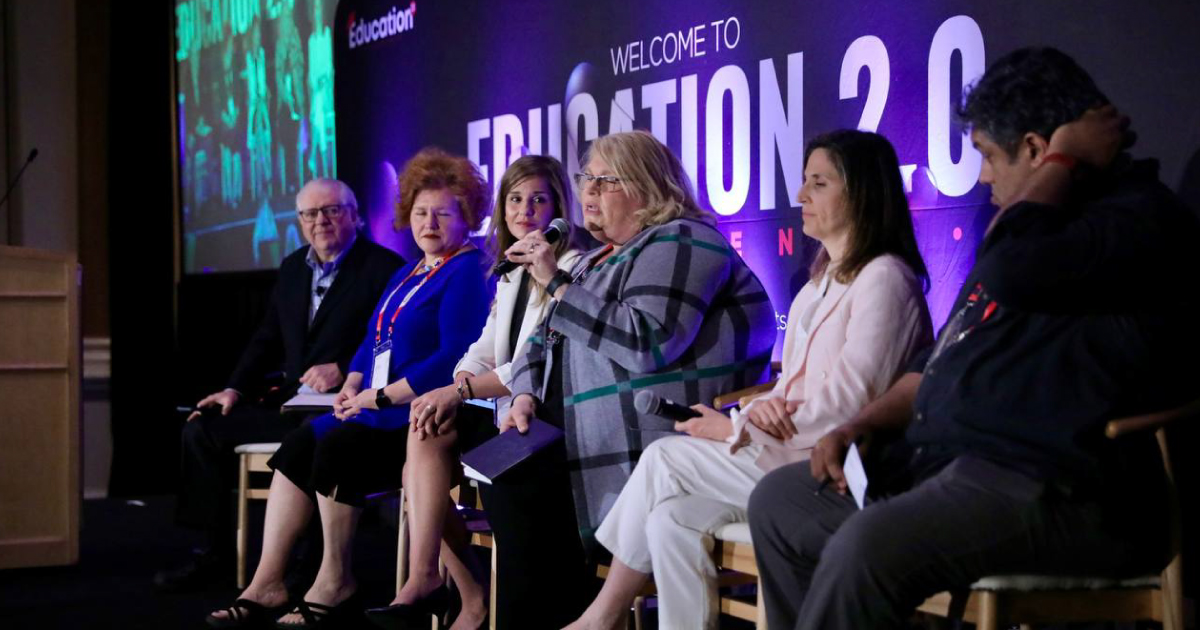In today's digital world, students are bombarded with information. Critical thinking empowers them to navigate this vast ocean, identify credible sources, and make informed decisions. This is no longer a fringe skill—it's essential. Educators across the US are actively seeking advanced strategies to cultivate these crucial abilities in their students, with an eye on the horizon where upcoming education events in 2024, like the Education 2.0 Conference, will further illuminate these methodologies.
This blog dives deep, offering valuable insights from leading educators and industry experts on cultivating critical thinking and digital literacy. By exploring these approaches, you'll gain the tools to prepare your students for the complexities of the modern world, ensuring they're well-equipped to thrive in the digital age.
Integrating Digital Literacy Across Curricula
Digital literacy is not just an add-on but a fundamental layer across all educational disciplines. It involves teaching students to navigate digital platforms efficiently, understand digital ethics, and utilize multimedia resources. Cross-curricular projects enhance interdisciplinary learning, encouraging students to apply critical thinking across various subjects. This approach ensures students are not only consumers of digital content but also critical analysts and creators.
Emphasizing The Credibility Of Sources
In an era of information overload, the ability to evaluate the credibility of digital sources is indispensable. Educators must teach students to investigate the digital footprint of authors, recognize bias, and use fact-checking websites. Real-time fact-checking exercises in classrooms can sharpen these skills, preparing students to navigate the digital landscape with discernment. As educators look forward, the nuanced methodologies and collaborative discussions expected at future USA education conferences will significantly enrich the curriculum, ensuring a more comprehensive approach to teaching students about evaluating digital sources.
Promoting Socratic Questioning
Socratic questioning encourages deep thinking and reflection. Role-play debates, peer-to-peer teaching, and reflective writing assignments are practical methods to engage students in this form of inquiry. Developing a question bank for classroom discussions can provide a structured way to introduce complex topics, encouraging students to explore and understand various perspectives.
Utilizing Technology For Collaborative Learning
Digital platforms offer unprecedented opportunities for collaborative learning. Online forums, virtual debate rooms, and peer review platforms foster a community of inquiry and dialogue. These tools not only facilitate engagement but also allow students to explore different viewpoints, enhancing their ability to construct and deconstruct arguments critically. As we look to the future, the integration of insights and techniques shared at upcoming education events in 2024, including the Education 2.0 Conference, will further empower educators to leverage technology in cultivating even more dynamic and interactive collaborative learning environments.
Incorporating Real-World Digital Challenges
Addressing real-world digital challenges within the curriculum makes learning relevant and engaging. Scenario-based learning and discussions on ethical dilemmas related to technology use can stimulate critical reflection. Digital innovation projects encourage students to apply their critical thinking skills to propose solutions to actual digital problems, bridging the gap between theoretical knowledge and practical application.
Encouraging Reflective Practices With Digital Portfolios
Digital portfolios are a powerful tool for reflective learning. Guided reflection questions, feedback loops, and digital storytelling can deepen students' understanding of their learning processes. Portfolio reviews offer a platform for students to articulate their thought processes, promoting a culture of open discussion and self-evaluation. The methodologies and reflective practices to be showcased at future USA education conferences will further enhance educators' abilities to implement and maximize the benefits of digital portfolios in cultivating a reflective mindset among students.
Cultivating Ethical Digital Citizenship
Teaching students to be ethical digital citizens is essential in a world where technology and social media are integral to daily life. This requires more than just understanding how to use technology; it involves promoting a sense of responsibility and ethics in the digital domain. Educators can guide students in exploring the impact of their digital footprints, the importance of respecting copyright and privacy, and the consequences of cyberbullying. Students learn to navigate online spaces respectfully and safely through discussions, role-playing scenarios, and creating community guidelines.
Projects that encourage students to think about the ethical implications of technology use and digital content creation promote a holistic understanding of what it means to be a good digital citizen. Integrating these discussions and projects into the curriculum prepares students to engage with the digital world thoughtfully and ethically, ensuring they contribute positively to the online communities they are part of.
Measuring And Reflecting On Outcomes
In summary, equipping students with critical thinking and digital literacy is crucial for navigating the digital age. Through integrating digital literacy, emphasizing source evaluation, utilizing Socratic questioning, and leveraging collaborative technologies, educators set students up for success. As we look ahead, the Education 2.0 Conference, along with other upcoming education events in 2024, will offer significant opportunities to expand on these strategies. These conferences will showcase the latest in educational innovation, providing a platform for professional development and collaboration. Educators are encouraged to delve into these events' agendas and select conferences that align with their objectives, seizing the chance to elevate their teaching strategies and prepare students for a dynamic future.














